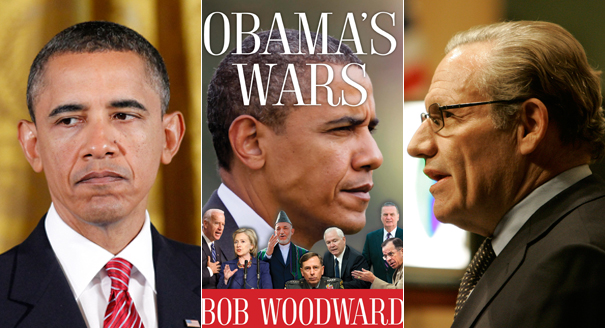A few days ago I had the opportunity to read Bob Woodward’s new book Obama’s War. An interesting book it greatly opens one’s eyes to how the world views Indo-Pak relations in general. Bob not only referred to Pakistan as being obsessed with India with self created disputes but clearly hinted about Pakistan being little more than just a hurdle in the face of a new and rising India which sooner or later would have to come under India’s feet.
India today is one of the fastest growing economies; the size of the Pakistani economy is not even 1/5th of the size of Indian economy, the forex reserves of India are well over $300 billion mark while Pakistan hardly has $16 billion in its kitty, FDI in India has been growing in double digits for over 10 years whereas Pakistan’s economic conditions has gone from bad to worse. Besides, India is considered the largest telecom market in the world where everyone can afford a mobile phone. Her health and education services are considered much better than ours enabling her to have a much larger, healthier and better trained workforce than us. With the help of a better economy India is able to maintain armed forces which are not only much larger in size but superior in weaponry than ours.
All these factors have helped India to adopt a negative attitude towards Pakistan. This along with our own present depressive conditions helps to ensure that every time we try to bring the Indians to the negotiation table, we end up getting nothing but some lame gestures of goodwill. Indians in view of their own rising military and economic strength, consider Pakistan as a small grumbling old rival which can easily be tamed in the future
Yet before we jump to a conclusion about being inferior to our old rival let’s look at the other side of the coin. Despite the huge differences between our economic and military sizes, military strategists around the world still believe Pakistan can beat India in a war. Despite the fact that we are facing one of the most depressing economic conditions and the worst internal security situations our country has ever witnessed, analysts around the world believe that the idea of Pakistan becoming a strong and economically sound nation in the coming decades might not be as farfetched as it seems. There are a few positive indicators pointing towards this possibility.
In comparison to India, youth (15+ age group) in Pakistan is spending more time in schools and colleges to graduate than their Indian counterparts. On average Pakistani students stay in schools and colleges longer to graduate at higher rates than Indian students at all levels–primary, secondary and tertiary. While India’s completion rate at all levels is a dismal 22.9%, the comparable completion rate in Pakistan is 45.7%, according to a report on educational achievement by Harvard University. Our higher education standards are on the rise with many local educational institutes linking up with foreign universities to provide international standards to their students. Female labour participation is constantly on the rise, resulting in over 3% increase in our labor force every year.
We have the seventh largest rice and wheat production capacity which can be enhanced to become the largest.
Furthermore ageing labor in the present industrialized nations can be of a huge advantage to Pakistan which has a largely youthful population. This along with our newly discovered natural resources which include the massive gas reserves, the world’s second largest gold and copper mine and 175 billion tons of coal reserves in Thar enough to provide us tens of thousands of megawatts electricity for hundreds of years and with our improving educational standards can aid us greatly to rapidly industrialize and catch up with our neighbors’ economically in the years to come. In short what we need is proper utilization of our resources.
Our poverty levels are far lower than those of India. Though we lag behind India in human development index and literacy rate the difference between the two is not as large as it might have been considering that Pakistan is a country whose history is marred with instability. India on the other hand has had a relatively much more stable environment than us to grow and prosper yet it still retains its position of having the highest number of poor in the world.
Moreover India has repeatedly tried to do everything it can to hurt Pakistan, the most recent example of this being in the water issue where she has blatantly violated all norms of international law to block our water supply on which our largely agrarian economy depends upon. The Kashmir issue remains unresolved mainly due to Indian rigidity in its Kashmir stance; it has created terror networks in our country and its hand behind Baloch insurgency is well- known. India is also known to be involved in creating instability in whole South Asian region and has hostile relations with almost all her neighbors. From Nepal to Maldives to Pakistan, all Indian neighbors have already tasted the bitterness of Indian atrocities. There is no guarantee that even if we forget Kashmir today India will stop playing its dirty games with us.
Our views about India are not only whims or obsession. There is a strong background behind these views supported by current ground realities. It is a known fact that US wants to use India against China and aims to please India for these gains. To achieve these objectives, USA appears to be sand-blind to factual position; therefore we must not agree with the American view about Pakistan that we are simply obsessed with India without rationale and reality.

